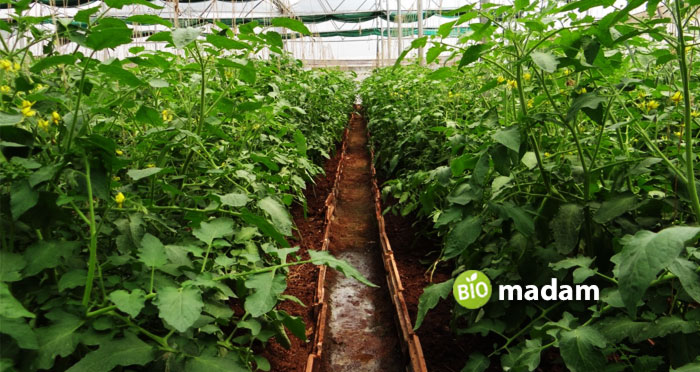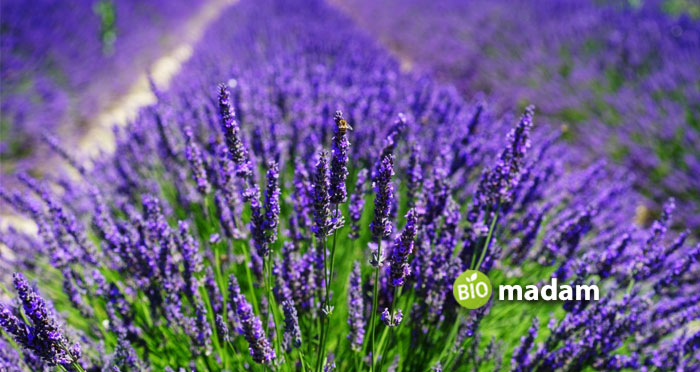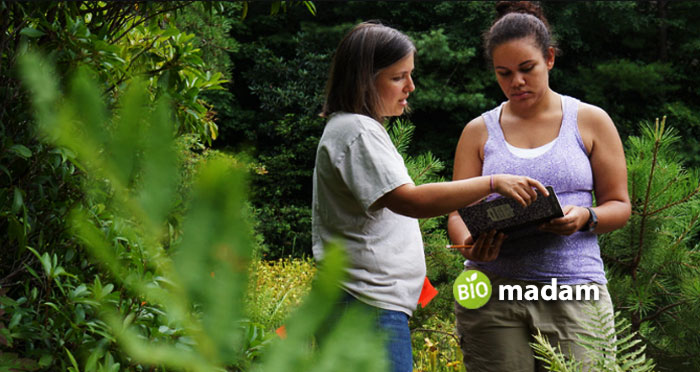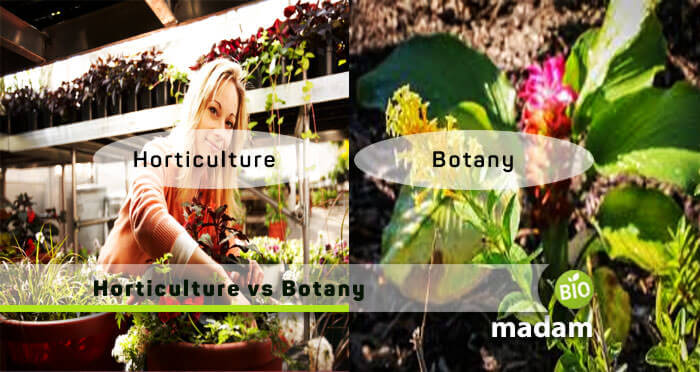Here to grab the difference between horticulture and botany. Before starting the topic, let me tell you that both are branches of science that deal with either vascular or non-vascular. plants. The intensified information in both of these scientific branches is interchangeable. A horticulture expert can utilize his knowledge of botanical plants and vice versa. Moreover, a horticulturist and a botanist can conveniently work within the same section.
However, you will find some clear differences between horticulture and botany later below. Botany is a larger field, focusing on all types of plants and their classifications. Whereas, in horticulture, one deals with cultivation and plant management, etc. To know more about them, let’s get to a quick comparison chart first!
Comparison Chart
| Horticulture | Botany | |
|---|---|---|
| Definition | A branch of science that deals with plants in agriculture, especially for food and ornaments. | A branch of science that deals with all types of plants, from the smallest one to the largest. |
| Science | Applied Science | Pure Science |
| Expert in the Field | An expert of horticulture is called a Horticulturist | An expert of botany is called a Botanist |
| Helps in | This department assists the farmers to enhance their plant fields. | This department helps in boosting all types of plant production. |
| Major Occupations | Garden and greenhouse manager, floral decorator, and so on. | Plant taxonomists, research lab operators, and so on. |
Define Horticulture
A branch of science that deals with garden cultivation, endurable plant production, extensively cultivated ornamental plants, foods, and their management is called Horticulture. Moreover, it conserves the plants and related species, plans the restoration process of the landscape, involves arboriculture, garden designing, soil management, etc.

Define Botany
Botany is a broad class of science that deals with almost everything related to plants and their species. It includes the study of plant physiology, morphology, ecology, genetics, and the plant’s environment. Moreover, a botanist also handles the classification, distribution, and geographical importance of plants.

Find Out the Similarities Between Horticulture & Botany
Linked to Plants:
Both branches of science deal entirely with plants and related species.
Exchangeable Knowledge:
these science-based fields, horticulture, and botany have interconvertible knowledge. For instance, a student from botany can easily apply his knowledge in the department of horticulture.
Interconnected Departments:
A horticulturist and a botanist can work together in the same department, applying their individual skills.
Discussing the Differences Between Horticulture & Botany
1. What Career to Pursue for
Horticulture
In this science-oriented field, a person understands the knowledge of cultivating or growing fruits, vegetables, spices, cutting flowers, shrubs, herbs, and landscape plants, etc. Although many jobs do not demand a fancy study, to seek a career as a Horticulturist, one can engage in a professional degree or diploma. Many universities and educational institutes are offering degrees relating to agriculture these days.
Botany
As we know that botany is a whole range of studies connecting to plants, and a botanist should be well-informed about his field. You can choose to study in the departments of plant biology and botany, etc., to pursue a career in botany. One of the amazing facts of botany is that it’s fundamental to live in a society. Since plants are a great way to help boost food production and medicines, this is the best-to-chase field.
2. Which Field of Work is Best in
Horticulture
There are many fields to opt for as a horticulturist. One can involve in the agricultural industry as a producer or can also partner with farmers to assist them in their plant production. Working with governmental agencies that deal in plants and agriculture is also another option for a horticulturist. Moreover, some other professions include:
- Floral architecture
- Garden manager
- Greenhouse manager
- Landscape planner
Botany
A person has numerous opportunities and fields to work as a botanist. If you are skilled enough to grow plants through single-cell techniques, you can apply this knowledge in the fields of forestry, horticulture, biotechnology, pathology, etc. Furthermore, if you have a strong grip on plant pollination and fertilization, you can opt for the field as an adviser to guide the workers in protecting the plant environment. Besides, a botanist can engage in private companies, biological centers, and research laboratories, etc.
3. Responsibilities of a Person in
Horticulture
A horticulturist work at his best to nurture and grow several plants and related species. They work in the agricultural department, including the responsibilities:
- Watering and setting gardens, and lawns for residential customers and their businesses
- Cleaning up or trimming the lawns, flowers, herbs, or shrubs
- Involving in flower decoration or outdoor designing of bushes and shrubs
- More into planting new trees and decorating gardens
Botany

A botanist usually studies to work with most research labs, plant-related government agencies, etc. Some vital responsibilities, being in the field of botany, includes:
- All information regarding agricultural production
- Finding all the new or endangered plant species
- Being aware of the probable changes in the weather, climate and rainfall that can affect plant and their species
- Working to restore and conserve the plant habitat, such as rainforest
Conclusion
We did our best to provide you with the differences between horticulture and botany. Both are systematic fields that relate to plants in one way or another. Botany regards the general plant study, covering all the agricultural aspects. Whereas horticulture is one of the many sub-sections of botany that focuses on plants in the human environment.

Hello, I would like to introduce myself to you! I am Chelsea Rogers, an experienced blog writer for science articles, holding an MPhil degree. My enthusiasm to grab the best knowledge, let it relate to botany, zoology, or any other science branch. Read my articles & let me wait for your words s in the comment section.

